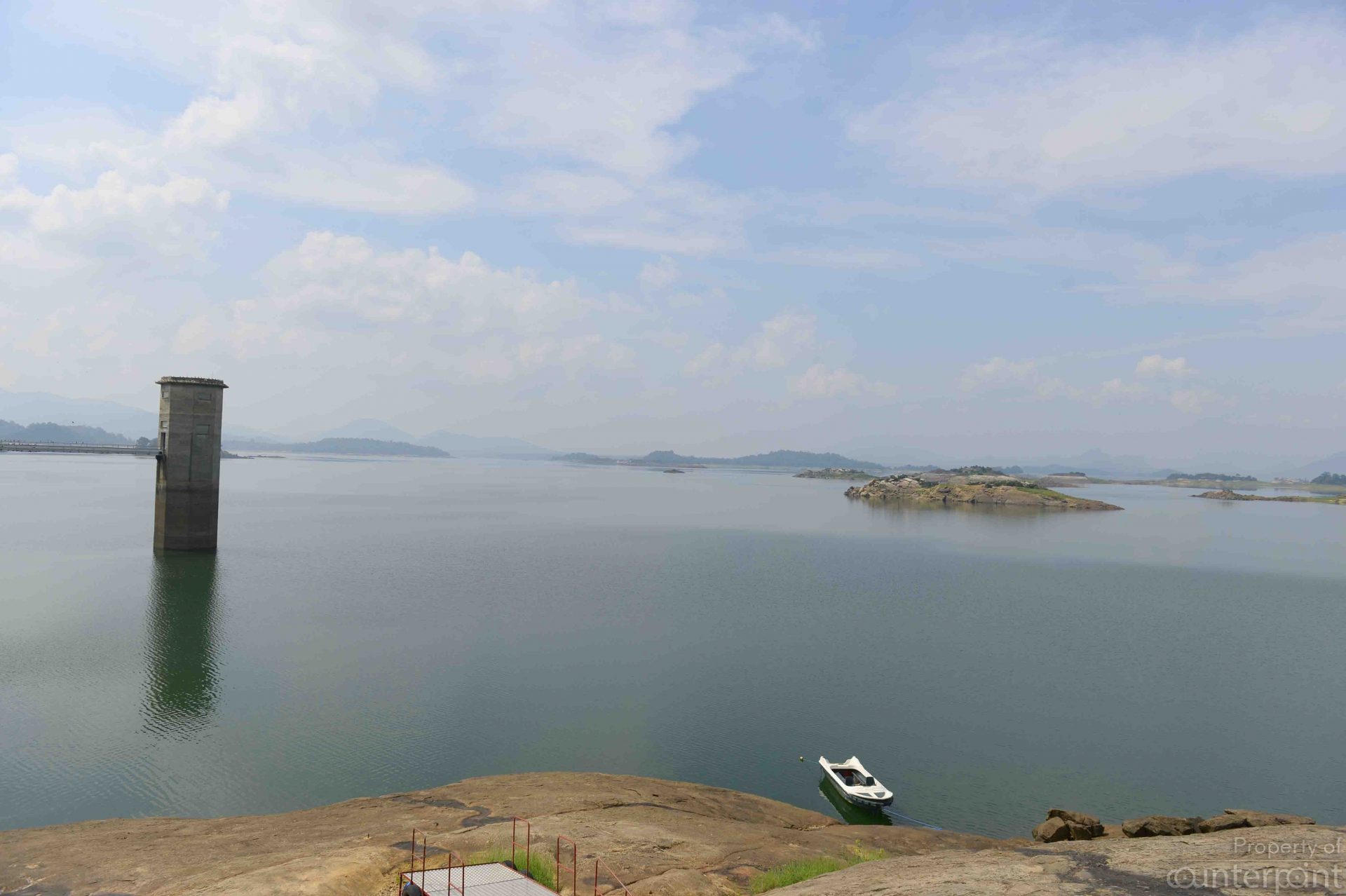
The Chronic Kidney Disease of unknown Aetiology(CKDu) which has plagued the north central province for nearly twenty years is spreading to other areas as well. And yet, neither the medical profession nor other researchers have found conclusive evidence of the root cause for this illness.
Professor Channa Jayasumana, Head of Pharmacology, Rajarata University says that there are an estimated 70,000 patients afflicted by CKDu. “Now the disease is detected in areas such as North Western Province, North Eastern Province and down South areas. Also, in the Eastern and Uva Provinces; especially among the sugar cane farmers. There are over 5000 patients in Uva,” he told Counterpoint. It is prevalent mostly amongst low income families whose main livelihood is farming.
While Chronic Kidney Disease (CKD) is usually brought on by diabetes and hypertension and studies show that one in every five persons above 20 years of age has been found to be diabetic or pre-diabetic, there is no one particular cause that can be attributed to CKDu, though most are in agreement that water, contaminated by agro-chemicals is the primary suspect. But they have not yet been able to come up with conclusive evidence.
 According to Dr. Ratnasiri Hewage, Director, National Institute for Nephrology, Dialysis and Transplantation (NINDT) “Colombo has the most number of diabetes patients. And diabetes leads to Kidney Disease.”
According to Dr. Ratnasiri Hewage, Director, National Institute for Nephrology, Dialysis and Transplantation (NINDT) “Colombo has the most number of diabetes patients. And diabetes leads to Kidney Disease.”
There are other contributory factors that are making it difficult for scientists to agree on what causes CKDu. Senior Professor of Geology at the University of Peradeniya, A Senaratne, explains that “A human’s health depends on the water he drinks and the food he eats. There are different types of salts found in water,” adding that calcium, sodium, nitrogen and iron are essential, but an excess of non-essentials getting into the body would result in illnesses such as CKDu.
Farmers may be using more than the prescribed amount of agro-chemicals in the hope of getting a better or higher yield, as well, they have been handling these chemicals for a long period.
Then there are other factors such as genetics, “where we see people in some areas are affected and others in the same area are not. Sri Lanka does not have enough research about this,” Prof. Senaratne points out. While more men rather than women are afflicted, and their handling of the pesticides more often could be ascertained as the cause, there is the question of how women and some young adults too have got it.
A report commissioned by the Presidential Task Force on CKDu, claims that evidence for the spread of the illness could involve the following factors -High level of Arsenic and Cadmium in humans in these areas, Low levels of Selenium (Malnutrition) , High levels of Calcium and fluoride in the water, presence of Agrochemicals residue in humans, Dehydration due to inadequate drinking of water & heat, Alcohol and tobacco consumption, Excessive and indiscriminate use of agrochemicals. The report also claims that there are “approximately 20,000 admissions and re-admissions of patients with renal failure to government hospitals with approximately 2,000 deaths annually.
Meanwhile, Professor Jayasumana says that “Glyphosate is the most widely used chemical among the farming community, not just in Sri Lanka but also across the globe. There are three types of pesticides; weedicides (Glyphosate), insecticides (organophosphates) and fungicides (Mancozeb). There is concern about phosphate fertilizers as well because they contain heavy metals such as arsenic and cadmium. Urea, in high concentration, can cause kidney disease too. But we did not detect it in the ground water,” the professor said.

“Chronic kidney disease is related to the agricultural community mainly in the North Central Province (NCP). Not just the chemicals but there are other contributing factors to it such as dehydration, hot humid climate and ground water quality. “It is very important to give these people quality water. They drink water from shallow wells and 99% of the kidney disease patients are those who consumed water from shallow water wells. Government is not doing enough for these poor farming communities, he told Counterpoint.
The water which is contaminated by agro-chemicals, says Professor Jayasumana should also not be used for cooking, as some heavy metals are not destroyed even when heated.
“Government needs to do more. We understand that it is hard to provide water from the central pipe lines. The best solution is to have reverse osmosis water plants in the area. Government launched a programme to supply water this way, donations were also made by private parties, but only 5-10% of the people get water through reverse osmosis water plants.
Pipe borne water coming right into their homes is a luxury unknown to most of those living in these areas. For many, it’s just a water tap outside their homes or in a common area, while others resort to getting their water from shallow wells, rivers or lakes. Some others receive water from bowsers sent out by government agencies.

A former Manager of the Water Supply and Drainage Board, who wished to remain anonymous, pointed out that Reverse Osmosis, which is the process of desalination where salt and other minerals are removed to produce fresh water, was suggested as a temporary measure around four years ago. It is meant only for those afflicted by CKDu, he said, pointing out that since only pure water without the minerals essential for the human body is produced through this method it is not the best answer for those not afflicted by the illness. Bottled water would have the same effect, he added.
While it is important to filter the water, Prof. Senaratne cautions that it depends on the filter we use. We need to filter out not just the heavy metals but also organics to some extent.”
A briefing paper of the Law and Society Trust entitled Voices and Perspectives of Communities Affected by Chronic Kidney Disease of Unknown Etiology, quotes Professor Dhammika M Dissanayake of the University of Peradeniya saying that “toxin-releasing algae in water tanks, widespread in affected areas, is a likely cause. Habitual alcohol consumption, food habits and prolonged exposure to heat are also identified as factors that enhance vulnerability to the disease. Meanwhile the paper also reports that according to Dr. Gamini Hitinayake, of the Faculty of Agriculture, University of Peradeniya, indiscriminate use of agro-chemicals, especially fertiliser has made the soil in the area incapable of absorbing certain chemicals in the water, to help in the process of purifying it. In fact he says the soil itself is contaminated.
The debate goes on. Recently, a court in California in the United States awarded US$ 289 million to a cancer victim who claimed his sickness was the result of using the herbicide glysophate. This has reignited the debate in Sri Lanka as to whether the ban on the use of glysophate should be re-imposed.
On the part of the government there seems to be more curative measures introduced in the affected areas, though some preventative methods have also been adopted. However, it is apparent that area residents too need to be more proactive in participating in early detection of the illness. The government must implement alternative measures that will rejuvenate the soil and water in the area and curtail the use of agro-chemicals until the root cause for the problem is found.
Dr. Hewage points out, “The best preventive measure is to get kidneys checked. For NCP everyone over the age of 20 years must get their kidneys checked and in other areas in must be over 30 years. Then we can see if a person is at a risk of getting the disease and find an early solution. It is the people’s’ responsibility to go for checkups. The government has provided the resources for screening and medication.”
Despite that, he says “When we go to certain areas for screening, the farmers send their wives. They don’t come themselves. They do not give priority to health; not health conscious. If we detect the disease early we can slow down the progress and help people.” Providing clean water to all is the ideal, but it does not necessarily mean that it is the right cure for CKDu, he points out.

Area residents who live out their lives daily in the face of this long-drawn out illness which drains them both emotionally and financially need to know what causes this malady so they could take precautions. As well, their future generations must be able to live free of this sickness. A mandatory annual health checkup would ensure early intervention if they are at risk of contracting the disease.
While patients and their families suffer, academics, the medical fraternity and other stakeholders’ debate and research the cause for this illness at local and international forums; and now, twenty years since it was first identified, the spectre of CKDu is threatening to engulf more districts of the country.





